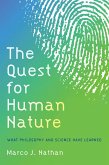From mitochondria to meerkats, the natural world is full of spectacular examples of social behaviour. In the early 1960s Bill Hamilton changed the way we think about how such behaviour evolves. He introduced three key innovations - now known as Hamilton's rule, kin selection, and inclusive fitness - which have been enormously influential, but which remain the subject of fierce controversy. Hamilton's pioneering work kick-started a research program now known as social evolution theory. This is a book about the philosophical foundations and future prospects of that program. Part I, "Foundations", is a careful exposition and defence of Hamilton's ideas, with a few modifications along the way. In Part II, "Extensions", Jonathan Birch shows how these ideas can be applied to phenomena including cooperation in micro-organisms, cooperation among the cells of a multicellular organism, and culturally evolved cooperation in the earliest human societies. Birch argues that real progress can be made in understanding microbial evolution, evolutionary transitions, and human evolution by viewing them through the lens of social evolution theory, provided the theory is interpreted with care and adapted where necessary. The Philosophy of Social Evolution places social evolution theory on a firm philosophical footing and sets out exciting new directions for further work.
Dieser Download kann aus rechtlichen Gründen nur mit Rechnungsadresse in A, B, BG, CY, CZ, D, DK, EW, E, FIN, F, GR, HR, H, IRL, I, LT, L, LR, M, NL, PL, P, R, S, SLO, SK ausgeliefert werden.









